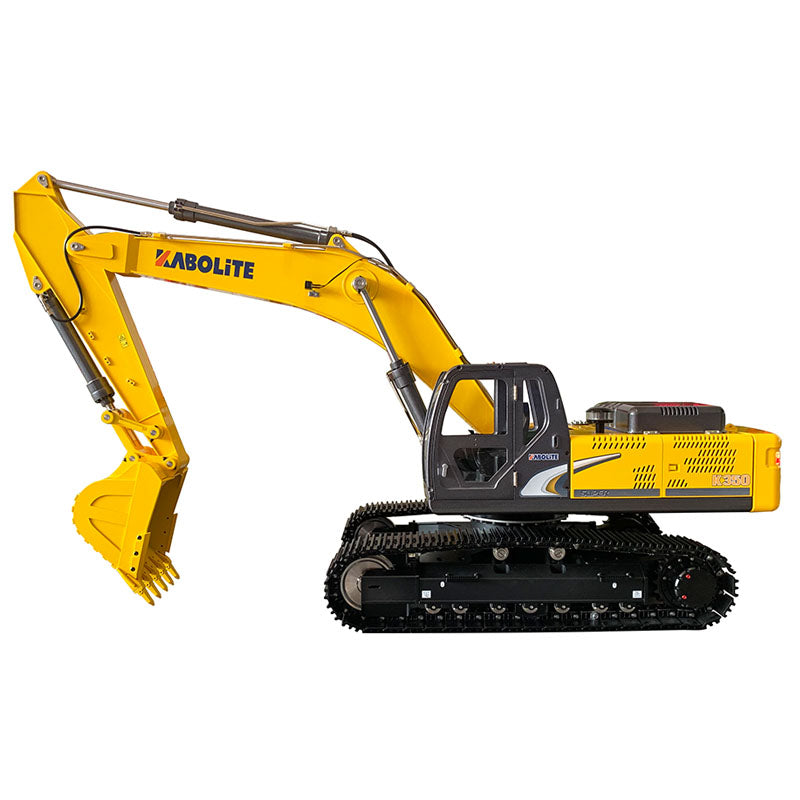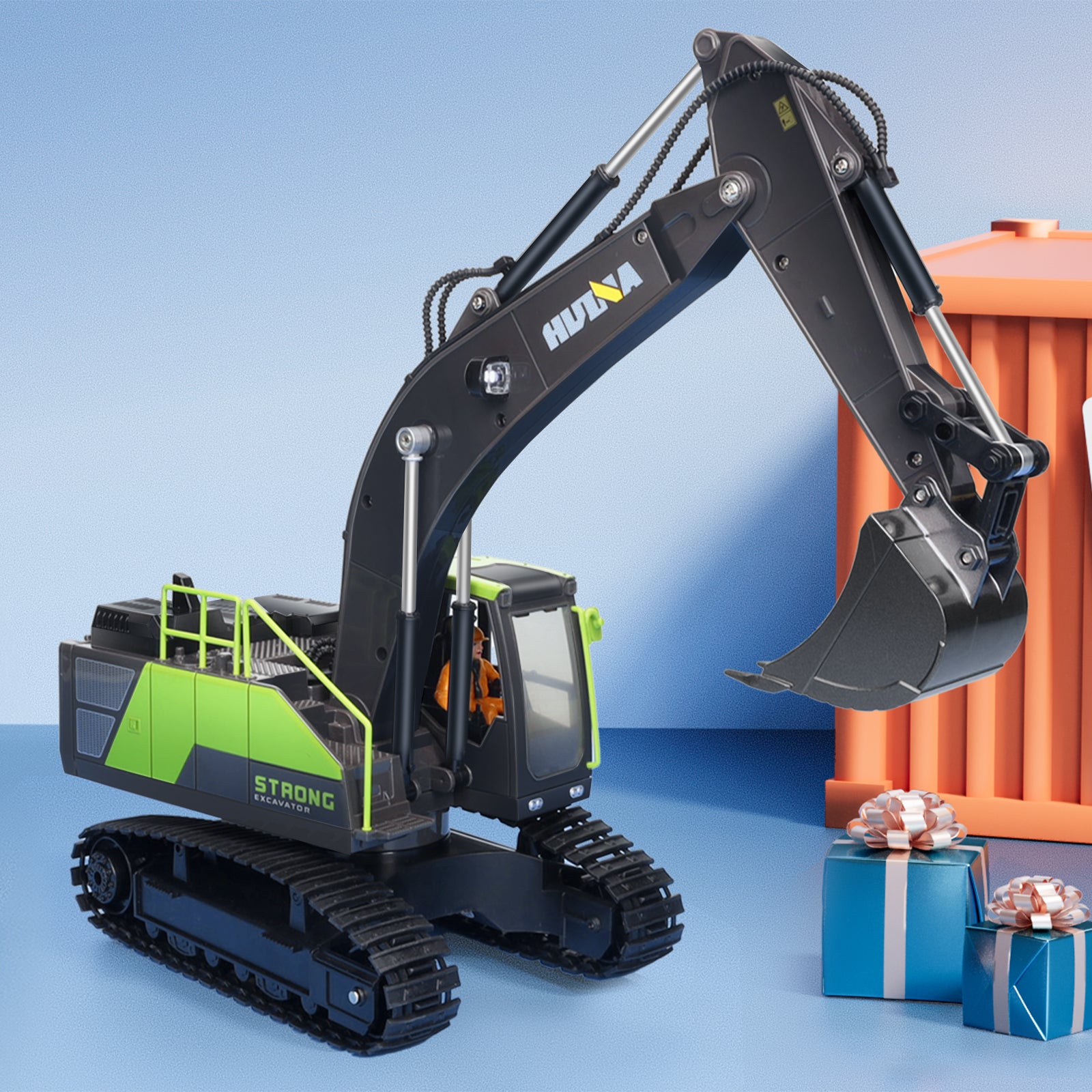Discover the Significance of Excavator in Modern Building And Construction Projects
Excavators are necessary devices in modern construction tasks. Their convenience enables them to perform a vast array of jobs, from excavating and grading to demolition and site prep work. Advanced features, such as hydraulic accessories and general practitioners, improve their capabilities and effectiveness on work websites. As the industry evolves, the value of excavators expands much more. Understanding their function can expose insights right into the future of construction methods. What lies ahead for these devices?
The Convenience of Excavators in Numerous Projects
Although excavators are usually related to massive construction tasks, their versatility permits them to be used in a large range of applications, from property landscaping to utility upkeep. In city setups, excavators can navigate limited areas to dig structures for homes or mount water drainage systems. Their capability to execute delicate jobs makes them ideal for landscaping tasks, where they can dig deep into for fish ponds or plant trees. In enhancement, excavators play an important function in energy upkeep, successfully digging trenches for pipelines or cable televisions without interfering with bordering locations. In agricultural applications, they aid in land clearing up and soil preparation. Furthermore, their versatility allows them to be equipped with numerous accessories, improving their functionality throughout different tasks. This complex nature of excavators not only enhances different building and construction processes but also demonstrates their integral function in modern facilities advancement and upkeep.
Trick Features and Sorts Of Excavators
The discussion on key features and sorts of excavators highlights the important qualities that make these devices vital in building. Different excavator kinds, each developed for particular jobs, show their flexibility and performance across various applications. rc excavator. Understanding these features and classifications is crucial for enhancing their usage in modern building tasks
Excavator Types Summary
Excavators play a pivotal function in contemporary building and construction, using adaptability and performance across numerous jobs. These heavy equipment systems been available in several types, each customized for details applications. The most common kinds consist of spider excavators, understood for their security on uneven terrain, and rolled excavators, which offer better mobility on paved surfaces. Small excavators are preferred for small jobs and tight rooms, while long-reach excavators are developed for deep excavating. Additionally, there are customized excavators, such as hydraulic excavators, which boost power and precision. Each kind includes one-of-a-kind capabilities, making them important for jobs ranging from excavating and grading to demolition and material handling. Comprehending these variations permits construction professionals to select the appropriate excavator for their task needs.
Secret Includes Explained
Comprehending the crucial attributes of excavators enhances their efficient application in building jobs. Excavators are identified by their powerful hydraulic systems, which give the essential pressure for excavating, lifting, and relocating products. Their verbalized arms permit a large range of movement, assisting in specific operations in confined spaces. In addition, the range of attachments, such as buckets, grapples, and augers, increases their versatility to fulfill various job requirements. The dimension and weight of excavators additionally add to their stability and ability to move on numerous surfaces. Improvements in technology have actually led to the combination of GPS and automation, enhancing accuracy and efficiency in excavation tasks. These functions collectively place excavators as crucial devices in modern building.
Applications in Building
Transforming building sites, excavators play a crucial duty throughout different applications, ranging from domestic structure jobs to large framework advancements. These versatile makers are outfitted for tasks such as excavating structures, trenching for energies, and website grading. Different kinds of excavators, consisting of spider, wheeled, and mini excavators, offer details advantages tailored to the job needs. Crawler excavators master harsh surfaces, while wheeled excavators offer flexibility on paved surfaces. Miniature excavators are excellent for confined areas, making them prominent in metropolitan settings. The effectiveness and power of excavators significantly speed up building processes, making certain timely job completion. Their versatility even more improves their significance, allowing building and construction teams to deal with a varied array of obstacles efficiently.
Enhancing Efficiency and Productivity on Work Sites
Maximizing effectiveness and productivity on task sites is an important goal in contemporary building. Excavators play a critical duty in accomplishing this objective by simplifying numerous jobs. Their capacity to execute several features-- such as training, grading, and excavating-- lowers the need for additional tools, thereby conserving time and resources.Moreover, excavators enhance operations by enabling faster completion of tasks. With advanced functions like hydraulic add-ons and general practitioners technology, they can implement precise procedures that reduce errors and remodel. This precision not just enhances the top quality of work yet likewise enhances material use, contributing to cost savings.The flexibility of excavators enables them to adjust to various website problems, making sure that projects progress efficiently no matter challenges. By integrating excavators right into building and construction processes, teams can greatly boost their general efficiency, leading to timely project conclusion and raised productivity.
Safety And Security Benefits of Utilizing Excavators
Excavators significantly enhance security on construction sites through improved operator exposure and decreased hand-operated labor risks. By supplying operators with a clear sight of their surroundings, excavators help to stop mishaps useful content and injuries. Furthermore, the equipment reduces the need for employees to take part in dangerous hand-operated tasks, even more advertising a much safer job atmosphere.
Boosted Operator Exposure
Although building and construction websites can be disorderly and loaded with potential hazards, improved operator exposure plays an important duty in ensuring safety and security when using excavators. Modern excavators are made with large, unobstructed home windows and strategically put mirrors, allowing operators to maintain a clear sight of their surroundings (rc excavator). This boosted visibility is important for detecting pedestrians, various other equipment, and numerous challenges, considerably reducing the risk of crashes. Furthermore, several excavators include innovative modern technology, such as cameras and sensing units, to supply operators with added perspectives, better boosting recognition. The capability to see more plainly not just aids in reliable procedure however additionally fosters a safer workplace, making it simpler for drivers to navigate complex construction sites without jeopardizing safety criteria
Lowered Manual Work Dangers
When manual work is minimized through the usage of excavators, countless safety advantages emerge, noticeably improving the health of building employees. Excavators decrease the physical pressure connected with hefty lifting and recurring jobs, efficiently decreasing the risk of musculoskeletal injuries. By automating processes such as excavating, grading, and moving products, they permit employees to keep a much safer range from potential dangers. In addition, excavators are furnished with innovative security attributes, such as rollover security systems and boosted driver functional designs, which better secure personnel on website. The result is a substantial reduction in workplace crashes and injuries, bring about increased performance and morale among building groups. Inevitably, the fostering of excavators adds to a safer and much more reliable construction environment.
Excavators in Earthmoving and Website Prep Work
In modern construction, a significant portion of earthmoving and website prep work jobs counts on the performance and versatility of excavators. These equipments are made to take care of numerous dirt types and terrain, making them crucial for rating, excavating, and trenching activities. Their hydraulic arms can be outfitted with various accessories, such as augers and pails, enabling drivers to tailor their strategy based upon specific job requirements.Excavators excel at relocating big quantities of earth quickly and successfully, which increases the total building and construction timeline. They can browse tight areas and challenging sites where traditional devices might battle, improving productivity. Additionally, the accuracy of excavators warranties that site prep work follows strict specifications, decreasing the danger of errors that could bring about costly rework.
The Role of Excavators in Demolition Tasks
Excavators play an important role in demolition jobs, as they possess the wikipedia reference power and dexterity needed to take down structures successfully. Equipped with different add-ons such as hydraulic breakers, shears, and grapples, these makers can adapt to various demolition demands, whether for small structures or big industrial websites. Their versatility enables operators to take on intricate jobs while preserving security and precision.In enhancement to their demolition capabilities, excavators assist in particles removal, making certain that work sites remain risk-free and organized. By breaking down frameworks right into convenient pieces, they permit streamlined clearing up and recycling of products, lining up with modern-day sustainability efforts.Moreover, excavators can access limited areas and navigate irregular terrain, making them important in metropolitan demolition projects. Overall, their robust style and multifunctionality make excavators a critical asset in the demolition phase of building and construction, adding significantly to task timelines and efficiency.


Future Fads in Excavator Modern Technology and Use
As the construction market advances, innovations in excavator modern technology are poised to change their usage and effectiveness significantly. One substantial trend is the combination of automation and artificial knowledge, enabling excavators to run with marginal human treatment. This shift will enhance accuracy in tasks such as grading and trenching, reducing human error and boosting productivity.Additionally, the increase of electrical and check out this site hybrid excavators is shaping a much more sustainable building and construction atmosphere, reducing carbon discharges and fuel costs. Enhanced telematics systems are additionally arising, enabling real-time monitoring of equipment efficiency and maintenance requirements, which can result in far better operational effectiveness and longer tools lifespan.Moreover, innovations in attachment innovation are broadening the flexibility of excavators, allowing them to perform a wider variety of tasks. The combination of these patterns shows a future where excavators are smarter, greener, and much more versatile, eventually improving building and construction job characteristics.
Frequently Asked Concerns
Just How Do Excavators Compare to Other Building And Construction Machinery?
Excavators, characterized by their flexibility and power, master digging and earthmoving compared to other equipment. Their capability to carry out numerous jobs, consisting of training and demolition, makes them vital in building jobs, improving total efficiency.

What Is the Typical Life-span of an Excavator?
The average life-span of an excavator usually ranges from 7,000 to 10,000 operating hours, relying on maintenance, usage problems, and design. Appropriate care can prolong this lifespan, making certain peak efficiency throughout its functional years.
Just How Are Excavators Kept for Ideal Performance?
Excavators need routine maintenance for peak efficiency, including routine evaluations, liquid checks, filter replacements, and timely fixings. Executing a precautionary maintenance timetable assists prolong their life expectancy and guarantees efficient procedure in numerous building and construction settings.
What Are the Expenses Connected With Acquiring an excavator vs. leasing?
The prices associated with renting versus acquiring an excavator differ substantially. Renting deals reduced upfront expenditures however can build up in time, while buying needs a substantial initial financial investment, yet supplies long-lasting savings and possession ownership benefits.
What Training Is Called For to Run an Excavator?
Running an excavator needs specialized training, normally including security protocols, device operation techniques, and ecological understanding. Qualification programs frequently mandate useful experience, allowing drivers to take care of different jobs effectively while making sure compliance with sector regulations. The most common kinds consist of crawler excavators, understood for their stability on irregular terrain, and rolled excavators, which provide better mobility on smooth surface areas. Tiny excavators are preferred for tight areas and small-scale jobs, while long-reach excavators are designed for deep digging. In addition, there are specific excavators, such as hydraulic excavators, which boost power and precision. Various types of excavators, consisting of crawler, wheeled, and mini excavators, give particular benefits customized to the job requirements. Crawler excavators succeed in harsh surfaces, while wheeled excavators supply flexibility on paved surface areas.